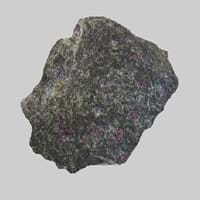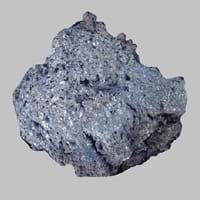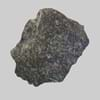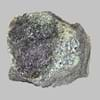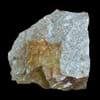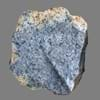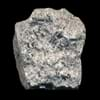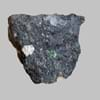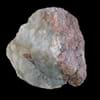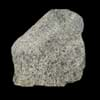Definition
Peridotite is a dense, coarse-grained plutonic is the main constituent of the earth's mantle
Picrite is a variety of high-magnesium olivine basalt that is very rich in the mineral olivine
Origin
Pike County, U.S
Hawaii Islands
Discoverer
Unknown
Unknown
Etymology
From French, from peridot + -ite
From Greek pikros bitter + -ite, 19th century
Class
Igneous Rocks
Igneous Rocks
Sub-Class
Durable Rock, Medium Hardness Rock
Durable Rock, Hard Rock
Other Categories
Coarse Grained Rock, Opaque Rock
Fine Grained Rock, Opaque Rock
Texture
Phaneritic
Earthy, Rough
Color
Dark Greenish - Grey
Black, Brown, Colourless, Green, Grey, Pink, White, Yellow
Durability
Durable
Durable
Scratch Resistant
Yes
Yes
Appearance
Rough and Shiny
Rough and Shiny
Interior Uses
Decorative Aggregates, Interior Decoration
Countertops, Decorative Aggregates, Homes, Interior Decoration
Exterior Uses
As Building Stone, As Facing Stone, Garden Decoration
As Building Stone, As Facing Stone, Garden Decoration, Paving Stone
Other Architectural Uses
Curbing
Curbing
Construction Industry
As Dimension Stone, Cobblestones
As a Sintering Agent in Steel Industry to process Iron Ore, Cement Manufacture, for Road Aggregate, Manufacture of Magnesium and Dolomite Refractories, Roadstone, Used for flooring, stair treads, borders and window sills.
Medical Industry
Not Yet Used
Not Yet Used
Antiquity Uses
Monuments, Sculpture, Small Figurines
Artifacts, Monuments, Sculpture
Commercial Uses
Creating Artwork, Gemstone, Jewelry, Source of Chromite, Platinum, Nickel and Garnet, Source of Diamonds
As a Feed Additive for Livestock, As armour rock for sea walls, Metallurgical Flux, Pottery, Source of Magnesia (MgO)
Types
Dunite, Wehrlite, Harzburgite, Lherzolite and Pyrolite
Oceanite
Features
Constitutes upper part of the Earth's mantle, Generally rough to touch, Host rock for Diamond, Is one of the oldest rock
Host Rock for Lead
Archaeological Significance
Famous Monuments
Data Not Available
Data Not Available
Famous Sculptures
Data Not Available
Data Not Available
Pictographs
Used
Not Used
Petroglyphs
Used
Not Used
Formation
Peridotites can be formed in two ways: as mantle rocks formed during the accretion and differentiation of the Earth or as cumulate rocks formed by precipitation of olivine and pyroxenes from basaltic magmas.
Picrite is a fine-grained, hard rock which is a type of metasomatite, essentially altered basalt. It forms with or without crystallization, either below the surface as intrusive rocks or on the surface as extrusive rocks.
Mineral Content
Amphibole, Chromite, Garnet, Magnesium, Olivine, Phlogopite, Plagioclase, Pyroxene
Biotite, Olivine, Plagioclase, Pyrrhotite
Compound Content
Ca, Fe, Mg, Potassium, Silicon Dioxide, Sodium, Titanium Dioxide
Al, CaO, Carbon Dioxide, Mg, MgO
Types of Metamorphism
Burial Metamorphism, Cataclastic Metamorphism, Contact Metamorphism, Hydrothermal Metamorphism, Impact Metamorphism, Regional Metamorphism
Burial Metamorphism, Cataclastic Metamorphism, Impact Metamorphism, Regional Metamorphism
Types of Weathering
Biological Weathering, Chemical Weathering, Mechanical Weathering
Biological Weathering
Types of Erosion
Chemical Erosion
Chemical Erosion, Coastal Erosion, Glacier Erosion, Sea Erosion, Water Erosion, Wind Erosion
Grain Size
Coarse Grained
Fine Grained
Fracture
Irregular
Uneven
Streak
White
White, Greenish White or Grey
Porosity
Less Porous
Less Porous
Luster
Shiny
Subvitreous to Dull
Cleavage
Imperfect
Imperfect
Specific Gravity
3-3.01
2.75-2.92
Transparency
Translucent to Opaque
Opaque
Density
3.1-3.4 g/cm3
1.5-2.5 g/cm3
Resistance
Heat Resistant, Pressure Resistant, Wear Resistant
Heat Resistant
Deposits in Eastern Continents
Asia
China, India, Indonesia, Kazakhstan, Russia, South Korea, Thailand, Turkey
India, Russia
Africa
Morocco, South Africa
South Africa
Europe
Finland, France, Georgia, Germany, Great Britain, Italy, Kazakhstan, Netherlands, Norway, Spain, Switzerland, Venezuela
Iceland
Others
Not Yet Found
Not Yet Found
Deposits in Western Continents
North America
Canada, USA
Canada, USA
South America
Brazil
Brazil
Deposits in Oceania Continent
Australia
New Zealand, Western Australia
Not Yet Found
All about Peridotite and Picrite Properties
Know all about Peridotite and Picrite properties here. All properties of rocks are important as they define the type of rock and its application. Peridotite and Picrite belong to Igneous Rocks.Texture of Peridotite is Phaneritic whereas that of Picrite is Earthy, Rough. Peridotite appears Rough and Shiny and Picrite appears Rough and Shiny. The luster of Peridotite is shiny while that of Picrite is subvitreous to dull. Peridotite is available in dark greenish - grey colors whereas Picrite is available in black, brown, colourless, green, grey, pink, white, yellow colors. The commercial uses of Peridotite are creating artwork, gemstone, jewelry, source of chromite, platinum, nickel and garnet, source of diamonds and that of Picrite are as a feed additive for livestock, as armour rock for sea walls, metallurgical flux, pottery, source of magnesia (mgo).
